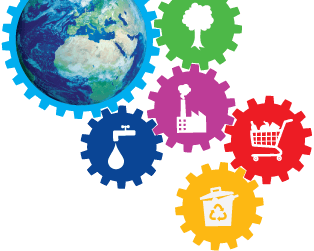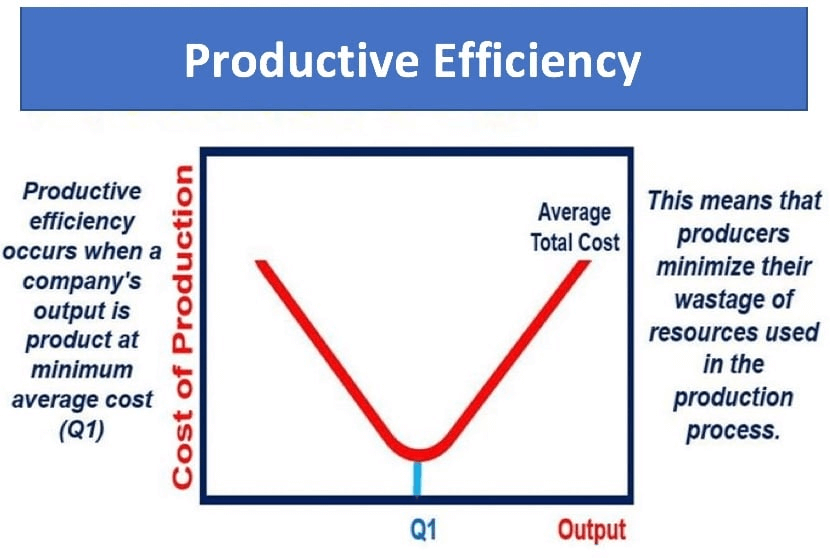Efficient DefinitionWhat is Efficiency?Efficiency measures how health resources are used to achieve a desired outcome. It is a measure of inputs versus outputs and is often used to compare the performance of different systems. Efficiency is a concept that can be applied to various contexts, from the economy to the environment. In the economic context, efficiency measures how efficiently resources are allocated to produce a given output, such as a product or service. In the environmental context, efficiency measures how efficiently resources are used to produce a desired result, such as reducing emissions or increasing energy efficiency. 
The concept of efficiency is closely related to the concept of productivity. Productivity measures how much output is produced from a given set of inputs. In other words, it measures how efficiently resources are used to produce a desired output. On the other hand, efficiency measures how well the available resources are used to produce a given output. Efficiency is often used to measure the performance of a system or organization. Efficiency can be measured in various ways, depending on the context. For example, in the economic context, efficiency is often measured as the ratio of output to input. This ratio is referred to as the "efficiency ratio" and is used to compare the performance of different systems or organizations. In the environmental context, efficiency is often measured as the ratio of output to input, or the "energy efficiency ratio," which measures how efficiently energy is used to produce a given output. Efficiency is essential in various fields, including economics, engineering, and environmental science. It is also an essential concept in the management of organizations and systems. By measuring efficiency, organizations and systems can identify areas for improvement and take steps to become more efficient. Efficient Resource AllocationEfficient resource allocation is the process of allocating resources in such a way that maximum output is achieved with minimum input. It is a process that involves carefully considering inputs, outputs, and the strategies used to allocate resources. In the economic context, efficient resource allocation allocates resources to achieve maximum output with minimum input. This involves carefully considering factors such as the cost of inputs, the expected output, and the strategies used to allocate resources. In the environmental context, efficient resource allocation allocates resources to achieve maximum environmental benefit with minimum input. This involves carefully considering factors such as the cost of inputs, the expected environmental benefit, and the strategies used to allocate resources. 
DefinitionEfficiency measures how well a given task is performed relative to its resources. It is usually expressed as a ratio of output to input or the amount of work done (output) divided by the amount of energy, time, or money (input) used to accomplish a task. Efficiency is the goal of many organizations, as it can reduce costs and increase profits. Efficient ProductionEfficient production is a process designed to maximize output while minimizing the use of resources, such as energy, labour, raw materials, and time. The production process should minimize waste and be as cost-effective as possible to be considered efficient. It can involve streamlining processes, utilizing technology, leveraging economies of scale, and automating processes whenever possible. 
One essential tool to ensure efficient production is lean manufacturing. Lean manufacturing is a production approach that seeks to reduce waste and optimize production processes. It focuses on maximizing value-addition and minimizing waste. This can be done by recognizing and eliminating non-value-adding activities, such as delays and defects. Additionally, it encourages small-batch production with shorter lead times to reduce inventory and increase customer satisfaction. Another tool for efficient production is the use of automation. Automation can help streamline processes, reduce manual labor, and improve accuracy. Automation can help increase efficiency by reducing the time needed for production tasks. Additionally, it can help minimize the risk of human error and increase the quality of the product being produced. Finally, efficient production also involves leveraging economies of scale. Economies of scale refer to the reduction in unit cost associated with increased production. By increasing production, firms can reduce their variable costs and better manage their resources. This can lead to significant cost savings and improved efficiency in the production process. Overall, efficient production involves lean manufacturing, automation, and economies of scale to maximize output while minimizing the use of resources. It is an essential process in any business and can help firms reduce costs, increase production, and improve customer satisfaction. Efficient Use of TimeThe first step to efficient time management is to identify the most critical tasks that need to be completed and be realistic about how much time can be devoted to each. Making a list of tasks and prioritizing them by importance can help to ensure that nothing is overlooked or forgotten. Setting specific deadlines for each task and breaking down large tasks into smaller, more manageable ones is also important. Limiting distractions and dedicating blocks of uninterrupted time to specific tasks is essential to maximize efficiency. This could include minimizing social media use, turning off notifications, and removing unnecessary materials. A timer can also help focus on a task for a certain amount of time before taking a break. It is also essential to make time for yourself. This could include regular exercise, time with family and friends, or simply relaxing and unwinding. This can help reduce stress and ensure you work with a clear and focused mind. Finally, do not be afraid to ask for help if needed. It is okay to delegate tasks and seek assistance when needed. This will help you to accomplish more in less time and ensure that tasks are completed to the best of your ability. In conclusion, efficient use of time is essential for success. You can ensure your time is effectively used by carefully planning tasks, setting realistic goals, limiting distractions, taking breaks, and asking for help. Measuring EfficiencyEfficiency can be measured in various ways, depending on the type of task being evaluated. For example, in manufacturing, efficiency can be measured by the number of products produced relative to the amount of energy, materials, and labor used. The distance may measure the transportation industry's efficiency traveled relative to the fuel consumed. Improving EfficiencyOrganizations can improve efficiency by streamlining processes, implementing automation, and leveraging technology. For example, businesses can use automated scheduling software to reduce the time spent on manual scheduling tasks. In addition, technology can be used to reduce costs and improve the accuracy of tasks. Advantages of EfficiencyThe primary advantage of efficiency is that it can reduce costs and increase profits. By streamlining processes, businesses can save time and money, allowing them to focus their resources on other business areas. In addition, efficiency often leads to better quality products and services and improved customer satisfaction. Finally, increased efficiency can increase productivity, resulting in higher profits. Efficiency is critical in any successful business, organization, or individual. Efficiency is the ability to do something well with the least waste of time or energy. Being efficient has many advantages, which can improve an individual's quality of life, a business's profits, or an organization's sustainability. Efficiency can also reduce stress and improve morale. When tasks are completed on time and efficiently, it can reduce stress on an individual. This can lead to increased job satisfaction and improved morale, which can help to increase productivity. Additionally, efficiency can help to eliminate unnecessary tasks and processes, which can help to reduce stress and create a more efficient work environment. Another advantage of efficiency is that it can help to save money. Doing a process efficiently can reduce the time and resources needed to complete the task. This can lead to cost savings in both time and money, which can help to increase profits. Additionally, efficiency can help to reduce waste, which can help to save money on materials and resources. Finally, efficiency can also help to improve sustainability. Efficiency can help to reduce the amount of energy and resources needed to complete a task, which can help to reduce the amount of waste and pollution produced. Additionally, efficiency can help reduce the time needed to complete a task, which can help reduce the amount of energy and resources used. This can lead to a more sustainable business, organization, or individual. Overall, efficiency has many advantages that can improve an individual's quality of life, a business's profits, or an organization's sustainability. Efficiency can increase productivity, reduce stress and morale, save money, and improve sustainability. By implementing efficient processes and techniques, an individual, business, or organization can reap the many benefits of efficiency. ConclusionEfficiency is a concept that can be applied to various contexts, from the economy to the environment. It measures how health resources are used to achieve a desired goal and is often used to compare the performance of different systems. Efficiency can be measured in various ways, depending on the context. In the economic context, efficiency is often measured as the ratio of output to input or the "efficiency ratio." In the environmental context, efficiency is often measured as the ratio of output to input or the "energy efficiency ratio." Efficiency is essential in various fields, including economics, engineering, and environmental science. By measuring efficiency, organizations and systems can identify areas for improvement and take steps to become more efficient.
Next TopicGoal Definition
|
 For Videos Join Our Youtube Channel: Join Now
For Videos Join Our Youtube Channel: Join Now
Feedback
- Send your Feedback to [email protected]
Help Others, Please Share










